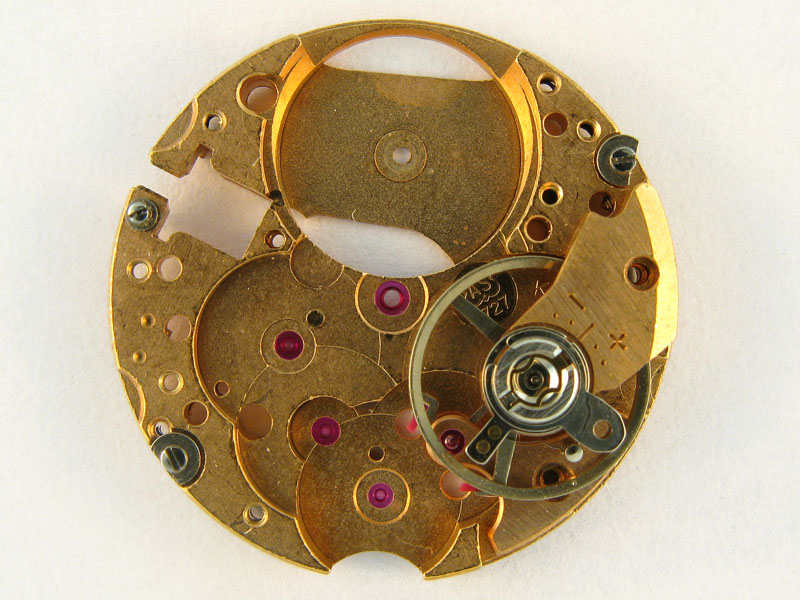
The Balance
The escapement, Escape Wheel and Pallet Lever, together with the Balance System is the real heart of the movement. The Escape Wheel and the Pallet Lever together perform two different but equally important tasks: to control the rate by which the Mainspring unwinds and to repeatedly give the Balance Wheel its needed impulse. The Balance Wheel and the Hairspring constitutes a mechanical oscillator with a stable frequency.


This figure shows the Pallet Lever put into its position and fixed by the Pallet Lever Cock. The Balance is also at its correct position on the main plate.

Here the Balance Bridge
is in place. The end stone of
the balance
shock-protection system in not mounted.

This figure shows the end stone and the
balance shock-protection mechanism.
One great improvement in watch
design was when
the shock-protection system was introduced. The idea is to prohibit
breakage of the balance arbor pivots by allowing the jewel bearing
and an end-stone - also called cap-jewel - to move controlled by a
spring. The spring holding the shock-protection together is of
different shapes in different
watch
manufacturer's designs.


The regulator, a part of
the balance system, is the fine tuning system to make the
balance oscillate
at the correct
frequency. It's like finding the right pitch
on a violin string
by gliding a finger up and down the string.
The violin player does this
to regulate the length of the string and hence get right frequency.
In the watch movement you control the effective length of the
hairspring in a similar way by moving the regulator index arm,
bottom left in the figure. N.B that the movement is in operation in
the figure, the Escape Wheel has moved some steps during the
exposure of the photo.